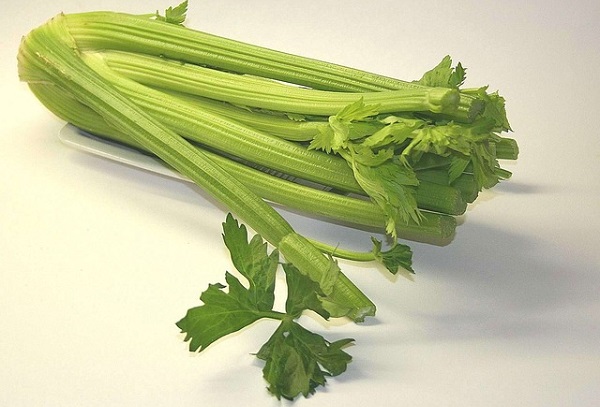Words: Team THINKWELLNESS360
Celery is a vegetable loved for its crisp texture and distinctive flavour. A bunch of celery is a single stalk comprising of separate ribs, and the most tender, inner ribs — called the hearts. The crispness of celery comes from the firmness of its cell walls and its high water content. In fact, celery is mostly water, which makes it low in calories — you may, therefore, call it the ideal snack food.
Celery is actually an aromatic herb. It has a distinctive flavour — this makes it a much-favoured add-on to salads and other cooked dishes.
Celery — or shalari, ajmud, or randhuni in Hindi — contains vitamin C and other antioxidant nutrients that promote health.
Research suggests that celery may be useful in cancer prevention.
It boosts the action of white blood cells [WBC], ‘soldiers of health,’ or, immune defenders, that target and eliminate potentially harmful cells, including cancer cells. In addition, certain compounds in celery have been attributed to prevent the growth of tumour cells.
Studies also indicate that celery may help reduce cold symptoms, or severity of cold symptoms.
It prevents free radical damage and reduces the severity of inflammatory conditions, such as asthma, osteoarthritis and rheumatoid arthritis, while promoting cardiovascular health too. It lowers cholesterol levels.
The seeds of celery have also, for long, being used as a diuretic in certain cultures. New studies report that celery regulates fluid balance, while stimulating urine production — to rid the body of excess fluid.
Celery, a good source of potassium, calcium and magnesium, has blood pressure-reducing properties too — this has long been recognised in Eastern medicine.
Most dieticians recommend that one should include 3-4 stalks of celery in their daily diet. However, they also suggest that one should make sure to eat low-sodium foods, not high-sodium foods, along with celery.
Fact-File
- A tablespoon of honey in celery juice effectively reduces appetite, when taken before a meal. Hence, it is useful in weight management
- Likewise, a tablespoon of honey in celery juice, taken before bedtime, promotes good sleep
- It has been found that celery juice prevents the formation of kidney stones
- The whole celery plant is gently stimulating and nourishing; it acts as a digestive remedy and liver stimulant too
- Celery roots are useful for treating cough, mild anxiety, restlessness, loss of appetite and fatigue.
Nutritional Content
[Quantity: 2 stalks: 2gm]Energy [kilocalories] = 13
Water [per cent] = 95
Dietary fibre [gm] = 1
Fat [gm] = 0
Carbohydrate [gm] = 3
Protein [gm] = 1
Minerals [mg]
Calcium = 32
Potassium = 230
Magnesium = 9
Phosphorus = 20
Vitamins [mg]
Vitamin A = 10
Vitamin C = 6
Folate = 22μg

